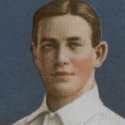Amaroq
Posts: 1100
Joined: 8/3/2005
From: San Diego, California
Status: offline

|
quote:
ORIGINAL: Cantankerous
I only mention this because PERHAPS his totals (and the realistic totals of the player above--the one with ratings of almost all 100's) were not "out of whack" because they were balanced by the large amount of talent of other players in the league. (30 teams makes for 750 major leagues players.)
Might it be that with only a FEW teams (say 4-8 teams max) there is not enough "balance" within the game for one player with exceptional ratings to be counterbalanced by a sufficient number of other players also with exceptional ratings to keep ONE SINGLE PLAYER from dominating the statistics?
Am I making sense here? I hope I'm presenting my point where others can understand it, but then since I don't know precisely why some people's leagues have unrealistic seasonal statistics (especially in K's), I am simply trying to present a possible reason.
That's an interesting hypothesis. Can the guys who posted the out-of-whack numbers indicate their association size, please?
I've been playing 1.20, with 16-team associations (8-team leagues, no inter-league play) and not seeing unrealistic numbers. (In fact, I primarily play that config, and haven't seen horrible numbers, period.)
. . .
For better understanding what's happening here, you need to remember that '100' in two different associations is not comparable. The ratings are done on a scale relative to the other players in the current association. If you imported a league consisting of 500 barely-made-it-to-the-majors guys, career .150 to .250 hitters.. one of them would be rated as the best "Contact" hitter, and would have a 100 rating.
If you then imported, say, Tony Gwynn at his peak... Gwynn would wind up with a 100 rating, while your next-best-guy might have been dropped to a 70 or so.
(For a quick demonstration of this, create a "Replay Association" seeded with 1901 pitchers and a 5-game season. Look at the number of pitchers with high "Stuff" ratings on the New York Giants. Sim the season. Import the 1902 draft, which includes a number of quite-good starting pitchers. Look at the Giants staff again. You'll see that many of those highly-rated pitchers have dropped from the 90's down to the 65-75 range, despite still having green arrows for their potential. Its not that they've gotten worse, its that the standard of pitching in the association has improved dramatically.)
My suspicion is that the 1.38 in-season aging model has the potential for a pitcher's ability to strike players out to climb unbounded, where the old off-season aging model had some form of hard cap on ability. In my imagination, there's no way we-the-users can tell this, because we see the 'scaled' rating - 100 Velocity! - and not the raw number which is generating incredible strikeout totals.
|
 Printable Version
Printable Version








 New Messages
New Messages No New Messages
No New Messages Hot Topic w/ New Messages
Hot Topic w/ New Messages Hot Topic w/o New Messages
Hot Topic w/o New Messages Locked w/ New Messages
Locked w/ New Messages Locked w/o New Messages
Locked w/o New Messages Post New Thread
Post New Thread